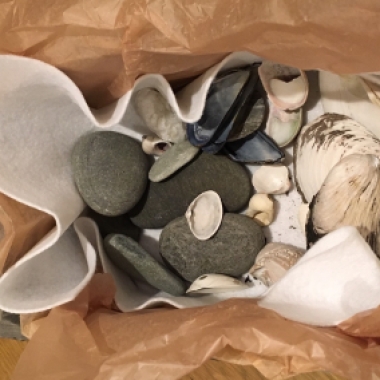I wrote my original posts on this blog about the inauguration of the MAIA (formerly Starfish) Impact School’s new building and my impressions of Guatemala as a first time visitor. The school’s impact continues to expand, boldly challenging the narrative and compelling us all to be braver and to rethink what our expectations are – of ourselves and others – and why.
It is impossible to overstate the impact that enhancing educational opportunities for girls in Guatemala can have. The average rural Mayan teenage girl has received only 3.5 years of education. Fewer than 1% of indigenous girls from rural areas go to university. The culture has historically emphasized that girls have no voice. The existing social systems are designed to make girls and women disappear – girls are not supported in getting an education; women are taught to be quiet and not to speak up; making eye contact is considered disrespectful.
And yet, globally, countries that have greater levels of gender equality are safer and more prosperous. Educating girls is also among the top forms of combating climate change. The MAIA Impact School, in its third year of operation, exists to “unlock and maximize the potential of young women to lead transformational change.” One way MAIA actively addresses the inequities in Guatemalan society is by incorporating vocal empowerment techniques from Speak educators to help the students find both their physical and emotional voice.
MAIA’s holistic approach also challenges the cultural norms by extending beyond the walls of the school to work with the students’ families in their homes. A MAIA mentor visits each student’s family monthly, during which time they engage with many aspects of the school curriculum such as personal and family goal-setting; emotional, mental, and physical health; vocal empowerment and healthy communication; and community development. As part of the admission process, families must commit to supporting their daughters through the completion of their secondary education. As a symbol of this commitment, when the girls start school, they and their families attach a lock to the gates of the school that will not be removed until they graduate.
As a testament to the profound steps MAIA is taking, last week the school was awarded the Zayed Sustainability Prize for Global High Schools in the Americas category. The school was one of 10 chosen winners from 2,100 applications that represented 130 countries. “This prize is given to global high schools in six geographic regions that can demonstrate impact, innovation, and inspiration to enable inclusive and equitable access to quality education.”

Three representatives from MAIA attended the Sustainability Conference and award ceremony in Abu Dhabi, United Arab Emerites (UAE). It boggles the mind to see these women, who were raised in a culture that told them that they weren’t valuable, embarking on their voyage to UAE.
Take a minute to think about the daily challenges you face. And then think about how brave these women have to be every day, to break the mold, to find their voice, to dare to reach for more in life. Think about Ester, a 9th grader from rural Sololá, Guatemala. Attending school beyond 6th grade was an enormous leap just a couple of years ago. Last week she traveled to the other side of the world. She crossed a vast stage to receive a prize for her school, a tangible testament to how meaningful and impactful all of the effort and sacrifice have been. She met people from all over the world – from UAE, Chile, and Croatia, to name a few – and represented on a global scale her school, her heritage, and her country. These MAIA representatives, these courageous Mayan women, are teaching the world about Guatemala while showing us all what is possible. This is bold. This is audacious. This is hope.




















